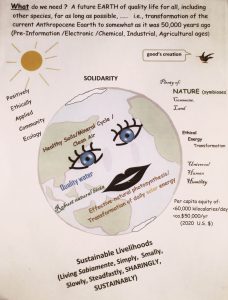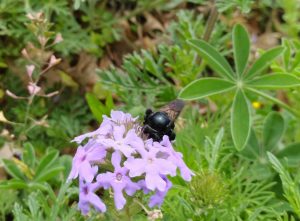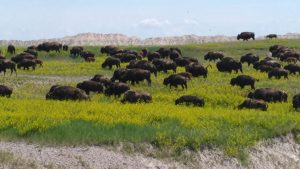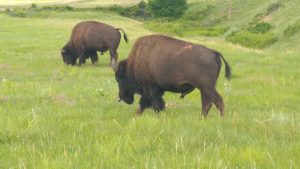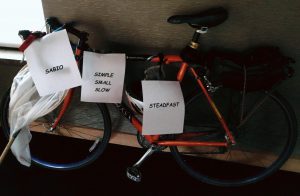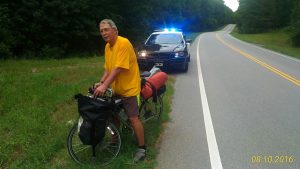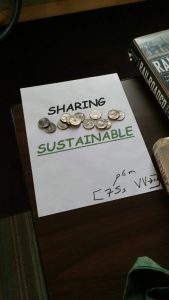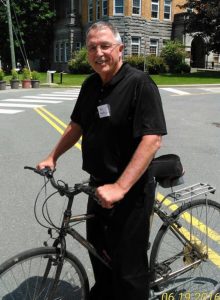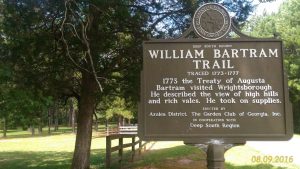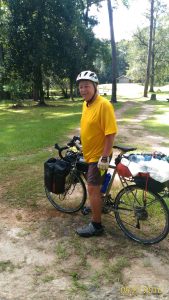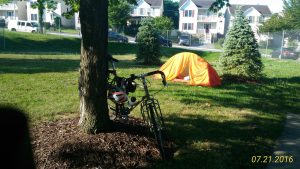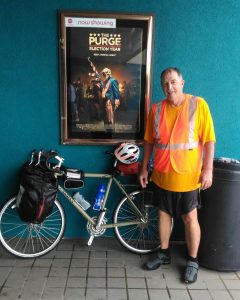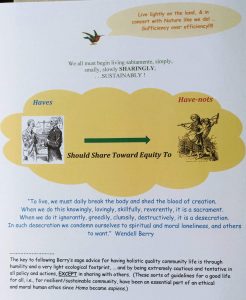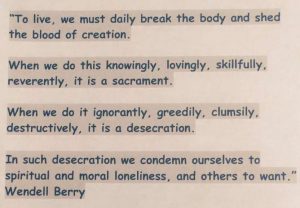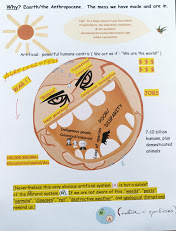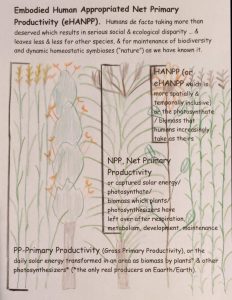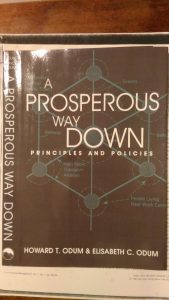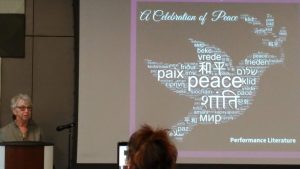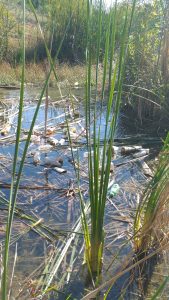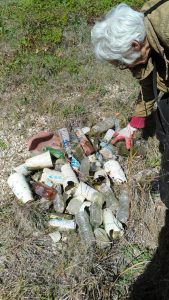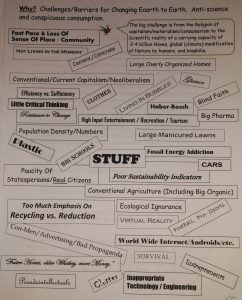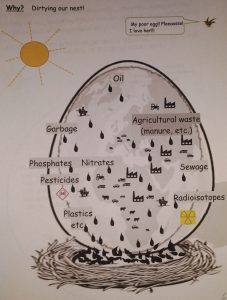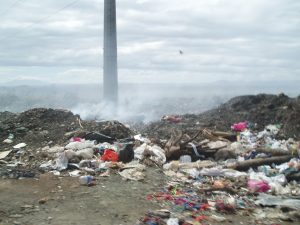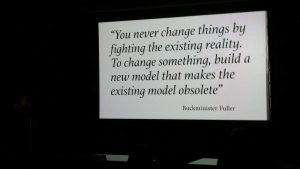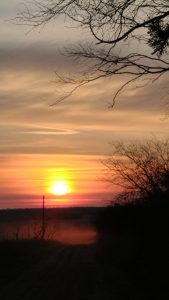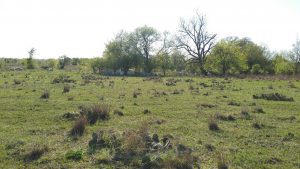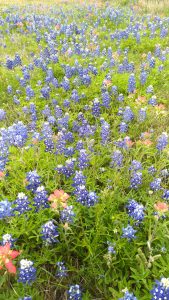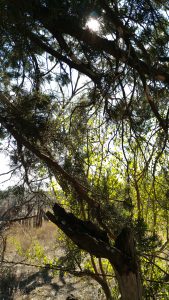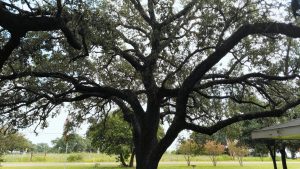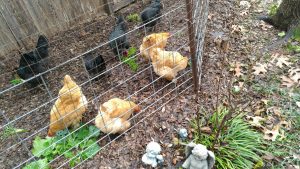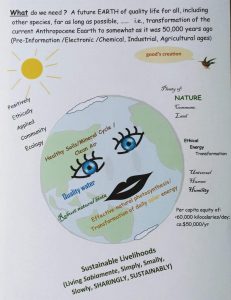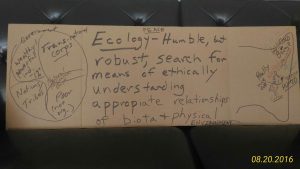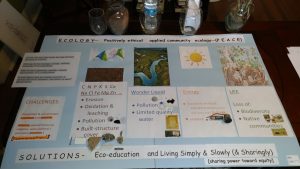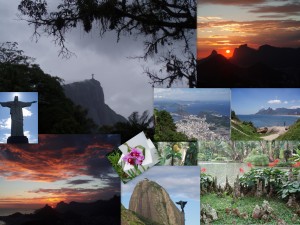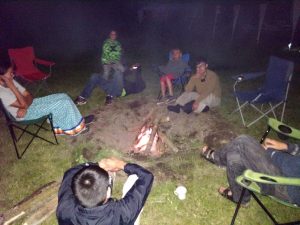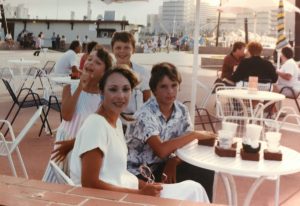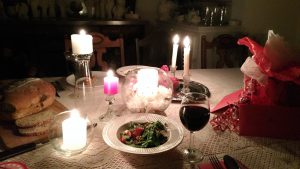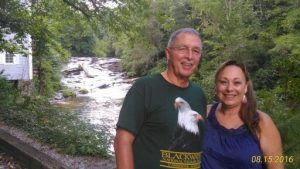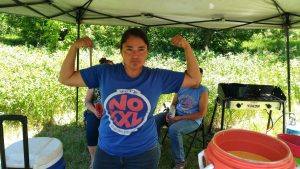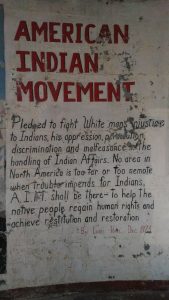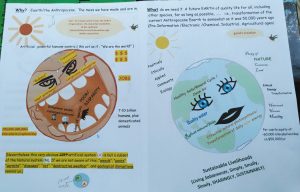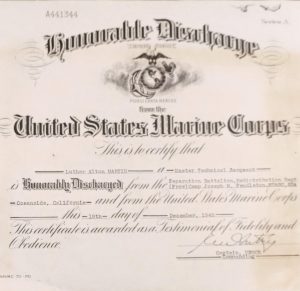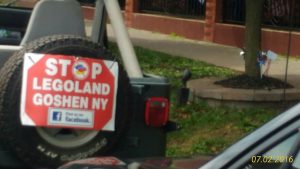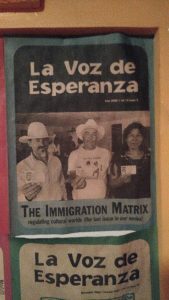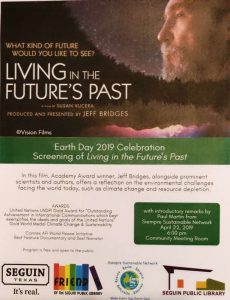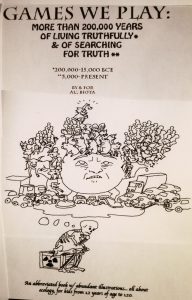

And a little bird said:
“Why? don’t you humans practice what you preach?
… the Golden Rule … PEACE … Love … Humility.”
Why? We Developed This Book!
The sky is falling for some living things at various points in time in the universes and cosmos. This can be observed … through lens of the Hubble space telescope, at eye levels here on Earth, or in the use of micro & nano technologies. On the other hand, at all of these dimensions, in certain spatial/temporal sectors for some species complexes (ecological communities), life is good! Moreover, this dynamism, incongruity, dilemma, enigma, mystery of humanity, Nature1, and Eaarth1—which includes War and catastrophes as well as lovers’ love and beautiful harmonies–can be studied and to some extent understood via physics, chemistry, geology, paleontology, anthropology, sociology, and psychology and/or a combined application-process of all of these and other disciplines in a manner which profoundly and comprehensively focuses on life and living systems, i.e., biology and ecology.
Despite the enigmatic and dark, fearful mysteries, and probably because of them, we all love life. We might especially love life, for example, on a day in my place of residence, Clean (or Real) Seguin, Texas, U.S.A. when we have the grandkids over and it’s a cool fall day after a recent rain. Or when the birds are chirping … and we’re sipping on a caipirinha made with quality cachaça, partaking of some of cousin Gilda Colley’s crunchy, tasty strudel, and we’re listening to John Prine singing “You Got Gold” (or even “Some Humans Ain’t Human”).
We who collaborated in developing this book do love life … and especially children and grand children! But beyond offspring, life includes all species, and the authors seek quality life and healthy life systems for ALL, and for as long as possible. We are, as Edward O. Wilson proposes, … WE ARE holistically biophilic.
Furthermore–in order to realize this love and to have healthy, quality lives for all–we recognize the urgent need for: comprehensive, in-depth education or ecology across curricula and campuses of all human organizational entities. And the appropriate application of this knowledge will inevitably involve a process of: reducing growth of human and domestic animal numbers, a reduction of consumption and collective ecological footprints … and redistribution of power to powerless humans, and other species. Herein we are using the symbol of: 7 Ss /VV->^^1, and the phrase, positively ethical applied community ecology/PEACE, for this very appropriate journey.
There were four major collaborators on this Zine-book dealing with applied ecology. A significant force, Joaquina Guevara–a Gen-Next and the youngest involved, received her ecological ethos from her generalist and agitator of a mother, Laura Salazar, and from a boarding school and at the liberal arts school of Wesleyan University in the northeastern U.S. Laura, a Gen-X, whose mother was from Guanajuato, Mexico, became a woman of many ecological talents, including within the arts, in a hard-scrabble world in the barrios of Houston and San Antonio.
A key collaborator on this little book, paul bain martin, is convinced that if everyone in the world lived sharing lives of small ecological footprints, such as that of his parents, Luther Alton Martin & Lousie Katherine (Kneuper) Martin, the world would be relatively sustainable, and much better in terms of quality life for all. During his formative years, paul was raised by Alton and Louise, or rather Louise and Alton, in a family of eight on a five-acre diversified hog farm in a two-bedroom home. After Alton booted him out to sort of fly ecologically on his own … he earned degrees in (agricultural) entomology from Texas A&M and the University of Florida. He started adding to what he learned about applied ecology from Louise and Alton, Ms. Ruth Allen, Mrs. D. Marshall, and Henry Moss and others in the Devine, Texas and environs … with more academic learning facilitated and taught through direct guidance and/or books of R.L. Ridgway, E.J. Dyksterhuis, P.D. Lingren, D. Pimentel, Archie Carr, H.T. Odum, E. Farber, V. Smil, H. Haberl, and others. Later Miguel Angel Altieri, P. Sechrist, P. Maddox, D. Birkenfeld, Lupe Romero Ramsey, Rosa Lilliam Gomez Diaz, and Marvel Maddox helped push him into applied ecology efforts which involved advocacy and activism. Others who very significantly inspired paul have been Dr. Joseph Schaffner, E.O. Wilson, D. Suzuki, Wendell Berry, D. Orr, J. Diamond, W. Jackson, D. Worster, V. Prashad, F. Kirschenmannn, C. Miller, and J. Kiel. And recently Hilario Martinez, Susan Kinne, and Alphonso Rincon have been wonderful role models.2
However, it was paul’s wife Betsy, and his children, their spouses, and grandkids who have sacrificed most for paul. They have given him a major impetus in his efforts toward PEACE.
paul and Betsy’s lives began immediately after World War II in the baby boom of conventional capitalism and massive advertising propaganda, consumerism, and materialism. However, their parents, influenced greatly by the Great Depression and a simple rural ethic, were humble, cautious, and frugal, and demonstrated that life can be full of love, learning, and robust community interactions while being sabido, simple, small, slow, steadfast, sharing, sustainable. Moreover, Catholic schoolings, teachings, and preachings infused in paul and Betsy a desired lifestyle of the 7 Ss1. And the civil rights-, anti-War-, and holistic ecological health-movements of the 1960s and 70s expanded a personal desired ethos of empathizing and sharing with other humans and other species, i.e., an Ethic of Reciprocity1, or a holistic interpretation and realization of the Golden Rule.
Even though paul, in particular, has always had trouble articulating eco-literacy and eco-values (as is the case with most folk), he eventually began to passionately believe that rather than seeking individual and tribal power, money, stuff, glamor, and arrogant satisfaction, …
1. We need to fervently and massively work toward reducing the individual and collective ecological footprints1 of the Haves (perhaps 0.5-1 billion humans, ca. 2020) and living the 7 Ss. (Reduction should be from about 150,000-300,000 kilocalories1 used /capita/day to about 60,000, or a reduction of about 2/3rds. In acres the ecological footprint in the U.S.A. should be reduced from about 20 global-acres/capita to seven (7). … Also, growth of human and domesticated animal population numbers needs to be reduced.
2. The power over the natural resource base (top soil and quality air, quality water, photosynthesizers, biodiversity1, free available energy1) needs to be shared and shifted toward the 3 billion (ca. 2020) Have-nots, and especially to the 1 billion in extreme poverty, and to other species (Ethic of Reciprocity).
3. Major actions and progress toward a world of the 7 Ss would include:
• Realization of positively ethical applied community ecology-PEACE across curricula and campuses of all human organizational entities. (All parents/adults should be tasked with teaching their children/other kids … biology and PEACE.)
• Open borders (but with regulation and caution in realizing this in order to not have net harm to havenot humans and other species).
• Setting aside ½ of Eaarth (with a goal of it becoming Earth again) to Nature (Proposed by E.O. Wilson et al.; Wilson 2016 Half-Earth: Our Planet’s Fight for Life).
• Realizing appropriate applied agroecology1 (As proposed by Dr. M.A. Altieri et al.; Altieri 1989 Agroecology: The Science of Sustainable Agriculture).
• Having a significant (critical) mass of humans from everywhere who would go to war zones, and actively, but peaceably!!/non-violently!, protest against actions of War and the possession and use of armaments/weapons.
• Through legislation, regulations, protest, lobbying, and a dramatic change in buying habits, force corporations and other primary manufacturers, processors, and packaging to appropriately deal through holistic life cycle-, embodied human appropriated net primary productivity1– and emergy1– analysis, etc. with all negative externalities like pollution, trash, waste; loss of biodiversity; and resistance to antibiotics.
When we begin to propose the aforementioned ethos and actions to others, we almost immediately receive “a deer in the headlights”-, “You are crazy!”-, or “Yeeaaah. Right.”- look/response. These general responses come from close family and friends, “Progressives”, “Nazis”, Christians, Muslims, ignostics, capitalists, socialists, anarchists, etc., etc., i.e., almost everyone.
Herein, we are making another stab at articulating what is inevitably, logically, and ecologically, morally and ethically, necessary! We are hoping it might open up constructive and robust dialogue in community toward a goal of quality life for all.
……………………………………
Some years ago the non-profit organization, Ogallala Commons, had its first community intern, Angela Ludolph, in the Seguin area, and Angela wrote this in her portfolio for this internship (Something which is very relevant to the mission of this little book on applied ecology) :
“Sustainable agriculture, which should always be a community affair and involve community gardens, was addressed via the U.S. 1985 Farm Bill as LISA1, Low Input Sustainable Agriculture. That’s the way a conserving, resilient, sustainable agriculture has to be: An agriculture which puts the Precautionary Principle1 up front and is slow with respect to energy flux and transformation, and material flow, and that places women and a mothering instinct in the driver’s seat. Nevertheless, barriers to what is truly sustainable agriculture — and low input, and community, and gardening — were quickly set in place in the 1980s via controlling high-energy (fossil energy and fossil energy-dependent high-input “renewables”1), status quo interests.”
For the most part, the authors of this little applied ecology book do not think many of the currently in-vogue “sustainable” practices (or ones proposed to be “the answer”), such as biochar or application of sea weed solutions, or high input systems of photovoltaics, electric or smart-hybrid cars, hydroponics, conventional organic food production, urban agriculture, or other high input/throughput systems … are moving us much toward ecological community resilience & sustainability. On the other hand what makes more sense in terms of quality life for all are: planned controlled rotational grazing/browsing for appropriately utilizing native grassland/savanna systems (and even for utilizing and managing vegetation within forests and urban areas); local low-input production of appropriate types of vegetables, grains, herbs, and fruits, and domesticated animals as well as honey production; passive solar designs of buildings; lowering consumption by individuals and populations; low-input & -throughput-/appropriate-technology; and the development of small schools holistically integrated with the Land/Nature and with ecology across the curricula and campuses.
Moreover, if any of us are truly going to be of help as Elders–or Masters of anything, we must be first be generalists/master naturalists/positively ethical applied community ecologists. Our goal and process of conservation and development of sustainable ecological community should be primarily reliant on inputs from the local community and not dependent on grants, fossil/mined energy, and materials from outside (especially including plastics). As much as possible, the systems we develop as wise ones should be relatively closed with regard to energy flux and material flow, and should be mostly utilizing local solar energy received daily.
There are several major reasons that development of low input regeneration and conservation of resilient, sustainable ecological community is largely ignored in South Central Texas and other parts of the world:
1.Our socio-political/economic systems emphasize an artificially built environment, mechanization, and instant gratification, which results in destroying Nature and natural cycles and processes. They reward quantity over quality which results in an increasing accumulation of unnecessary material goods which are not conducive to healthy life for all (including other species). They do not reward ecological soundness and resilience. … Moreover, they do not adequately reward social justice and humaneness.
2. Our education systems do a very poor job in facilitating a development of knowledge of ecological principles and processes.
3.We do not critically think about:
• Why Nature and the natural, and sense of ecological community and place, are necessary;
• The fact that a high rate of local and global energy transformation is harmful to quality
life;
• What quality life means as individuals and in community (locally and globally, and including
other species); and
• How we will effect effective change toward sustainable community.
[Other barriers to a process of sustainability are discussed in: http://www.paulpeaceparables.com/2019/09/04/from-ecology-across-campuses-and-curricula-and-ecological-literacy-toward-sustainable-livelihoods-and-conservation-and-sustainable-community-revisting-by-siempre-sustai/ & http://bannedbookscafe.blogspot.com/2013/09/normal-0-false-false-false.html .]
Therefore, for these aforementioned reasons we do have much difficulty in sitting down at a common table and in beginning to effectively communicate about what quality life means and how we might go about realizing it, i.e., what our local and global community goals are and what are the objectives, action items, and assessment tools for realizing these.
Even though we the collaborators on this book do recognize that we haven’t personally done much of significance in our many years of life–and that we are all sinners, we also know we can do better … and that today is the proverbial first day of the rest of our lives. Therefore, we can do better and we can begin now. There is hope! Moreover, we strongly feel that efforts toward smaller schools and ecology across curricula/campuses is where all of us should be expending much of our energy. http://en.wikipedia.org/wiki/Small_schools_movement http://www.ecoliteracy.org/change/greening-campus )
We know that for those who are broadly- and deeply-learned, experienced, moral, and ethical, … most of what is in this little book on applied ecology is obvious and is nothing new! In additional we know that for these wise Elders as well as those of us who are wet behind the ears and less learned and experienced, … worldwide peace is the goal.
Finally, collaborator paul martin heard from a Franciscan priest in his youth, and was impressed by, the following biblical quote: “I know thy works, that thou art neither cold nor hot. I would thou wert cold or hot. But because thou art lukewarm and neither cold nor hot, I will begin to vomit thee out of my mouth.” paul and all of the collaborators on this little book DO NOT want anyone to be comfortable, complacent, entirely peaceful until all in the world have peace.
PEACE, or positively ethical applied community ecology, is an agitation process toward peace.
………………………………………..
1 See the Glossary. (The 7 Ss are living … Sabiamente/wisely, Simply, Slowly, Smally, Steadfastly, Sharingly, Sustainably. Moreover, human populations and those of their domesticated species need to be regulated, especially consumption by the Haves with their power shared with havenots, including other species, with a goal of achieving true, holistic, and profound solidarity.)
2 There were also many others, e.g., Pope John the 23rd, M.L. King, Jr., Cesar Chavez, as well as
leaders/teachers/coaches in pbm’s home town Devine-Texas, … . We do wish that we could acknowledge and list them all.
